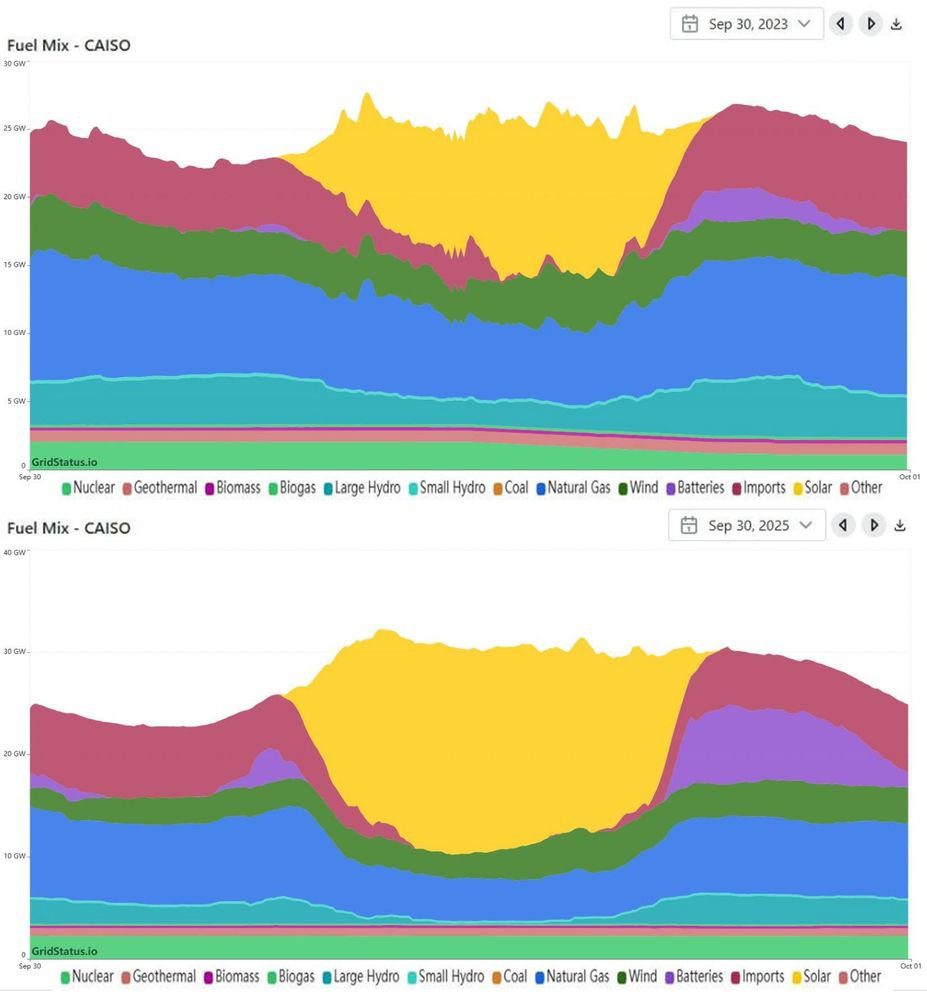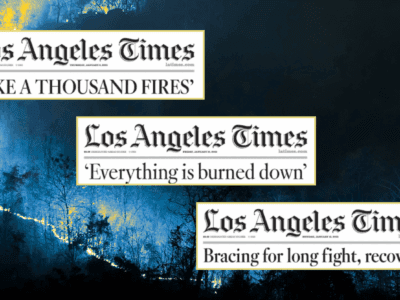Will Technology Save Us? It Might Have To
Battery innovations provide at least some source for hope despite the Trump Administration’s war on renewable energy
There is little good out there, but it was nice to see this graphic recently.

It’s a graphic of the daily energy usage in California broken down by source and by time period, according to the California Independent System Operator. That’s why you can see the yellow-gold area, representing solar capacity, expand during the daytime — that’s when the sun is out. And there is good news there: between 2023 and 2025, there is a significant increase in solar generation.
But that’s not the real story: take a look at the purple area that kicks in during the evening. That’s storage from solar-powered batteries, and it appears to have exploded in the last two years.
Electricity battery storage has long been one of those things that generates not power, but a joke: “batteries are the future of energy, and they always will be.” They never seemed to come through, but now they are.
This seemed to be too good to be true, so I dug around a little, and it seems to be true: California has developed gobs of solar-generated energy power. According to the Financial Times — hardly a cheerleader for progressive crunchy energy policy, the fallout from the rolling blackout crisis of two decades ago
has spurred a boom in mega battery development. Enabled by state policies, California’s battery storage capacity has more than tripled to 13GW of power, with plans to add another 8.6GW by 2027.
Now, as cheap, plentiful solar power floods the grid in the middle of the day, hundreds of battery installations bank the energy and discharge it in the evening when people return home from work and demand — as well as prices — spike. This has shored up the grid, extended the state’s use of renewable energy and reduced its reliance on fossil fuels.
Similarly, The Economist reported back in May that “California has gotten really good at building giant batteries.” So has Texas — yes, that Texas.
The Economist warned that the Trump Administration’s relentless attempts to destroy renewable power might slow down the market, but the FT also noted that batteries are key to what it calls China’s green energy transition. That means that technology will keep developing.
In typical fashion, this also means that China will take the lead on technological development thanks to the Trump Administration’s war on science and universities. Last night, I spoke to a prominent scientist from Rutgers who said that China is generating a lot of very good science despite authoritarian system, and attracting more talent from abroad: after all, China’s human right record is awful, but foreign scientists don’t want to run the risk of ending up in one of Stephen Miller’s gulags, and now cannot even get in to the United States in any event.
Put another way, there is a reason why Donald Trump declared bankruptcy six times: he’s a terrible businessman who makes terrible decisions. He just got his clock cleaned by Xi Jinping on trade: energy technology will be no different.
I do not want to be overly sanguine: reducing energy credits will have an impact, and the massive growth of energy demand from data centers will make decarbonizing the grid even more challenging. But I will take small favors where I can find them.
Back in the 1960’s, before the Clean Air Act, people wanted to use technology to fix the smog problem. But it was stupid technology: they wanted to erect huge fans on the Hollywood Hills to bloy smog out to sea. Eventually, though, we got catalytic converters. That wasn’t automatic: it required the Clean Air Act, and smart policymakers to foster them. On the federal level, those people are being fired. But perhaps we have reached a point where their damage can be controlled — at least in this area.






Reader Comments